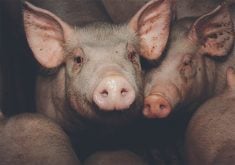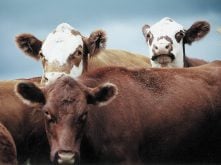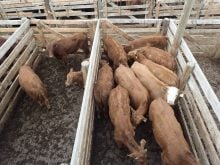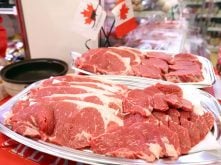LINDELL BEACH, B.C. – A common pasture plant could help control a damaging and sometimes deadly worm that infects the stomach of ruminants.American animal scientists have patented formulations of Chinese bush clover, or Sericea lespedeza (SL), which have been shown to effectively control barber pole worm when consumed by sheep and goats.“Haemonchus contortus, or barber pole worm, infects the abomasum or true stomach of the ruminant, rather than the small intestine,” said Joan Burke of the U.S. Department of Agriculture’s Agricultural Research Service in Booneville, Arkansas.“Consumption of SL by sheep and goats does not seem to affect intestinal worm species, only the barber pole worm, (which) is the most problematic worm for small ruminants in the southeastern U.S. and during the warm, humid summer months in other parts of the country and Canada,” said B urke.“It is true that barber pole worm can be life threatening to sheep and goats as well as some other small ruminant species (camelids and zoo species). It is a blood sucker and can cause anemia, lost weight gains and death if left untreated.”The worm may be a southern U.S. problem, but Burke said a colleague from the University of Georgia recently told her about infected sheep in Manitoba. Two Canadian-bred ewes, six weeks post parturition, were confirmed to have died of infestation from barber pole worm.She said the worm is a problem for sheep and goat farmers around the world.“Under ideal management (good nutrition, avoidance of overgrazing or overstocking) many flocks-herds can tolerate the parasite with minimal losses,” Burke said.“However, if a pasture is heavily stocked and animals are in poor to moderate body condition, economic losses can be devastating.”Animals that are severely infected with the worm can become anemic, which can happen quickly during summer.Anemia can be diagnosed by examining the lower eyelid of the animal. A healthy animal will have red colouring while an anemic animal’s eyelid will be pale.Anemic animals will lack energy and may lag behind the rest of the group. They may also exhibit bottle jaw, which is an excess of fluid below the jaw area.Some breeds of sheep, such as the St. Croix, are extremely resistant to the worm, but most wool breeds are susceptible.Burke said she has heard of a producer in South Carolina who lost 50 percent of a lamb crop.“The infective stage of H. contortus larvae live on and near dew-covered grass, which is consumed by grazing ruminants,” Burke said.“Once in the rumen, the larvae continue development, travel to the abomasum, or true stomach, where they become embedded in the stomach lining and mature to adults. The adult female can lay thousands of eggs daily, which are deposited in the feces, hatch on pasture and the life cycle begins again. The entire life cycle can be completed in four to five weeks.”Chinese bush clover is a forage species that was introduced to the United States from Asia in the 1930s to minimize soil erosion.It is a semi-woody, leafy-stemmed perennial that can grow to 1.5 metres and is found in disturbed habitats, fields, roadsides and woodland as far north as the Great Lakes.While classified as a noxious invasive species, the plant can also work as a livestock feed and Burke’s research is showing it has a curious, new value.“Consumption of SL leads to a reduction in fecal egg counts, but not necessarily a reduction in the number of adult worms,” she said.“SL contains condensed tannins, which are believed to be involved in reducing the egg laying ability of the worm. The mechanism of action is not yet clear.“Also, the condensed tannins bind to protein, allowing more available protein to the small intestine, thus increasing protein available to the animal. An increase in protein in the diet helps the animal to better tolerate the worm.”Studies have been conducted on the percentage of SL available in the diet to lambs or kids. There was some reduction in fecal egg counts when 25 percent of the diet consisted of SL leaves. It is suggested that 75 percent of a supplemented diet include SL leaves during the barber pole worm season.”Chinese bush clover also decreases methane production, according to studies done at Langston University in Tulsa, Oklahoma.The plant is an excellent source of forage and hay for goats and a good forage crop for sheep, but lambs are initially slow to graze it unless grazing with their dams.Goat production for meat or milk is an attractive alternative business for farmers in the southern U.S. because of the low cost of breeding stock, high reproductive rates and the animals’ ability to thrive on native pastures or brush land unsuitable for crops.However, while intestinal parasites are controlled by dewormers, the barber pole worm has developed a resistance to available products.To counteract this, Burke and her colleagues patented a dried form of SL for incorporation in feed. Work is continuing on this development but the feed is not yet available for distribution.“The variety of SL that we have found to be effective in the dried form of the plant is AU Grazer, developed by a forage breeder at Auburn University,” Burke said.“It is not clear whether other varieties (of the bush clover), once harvested, can control barber pole worm, (but) it is believed that control of the worm is possible by grazing several varieties of SL.”
Read Also
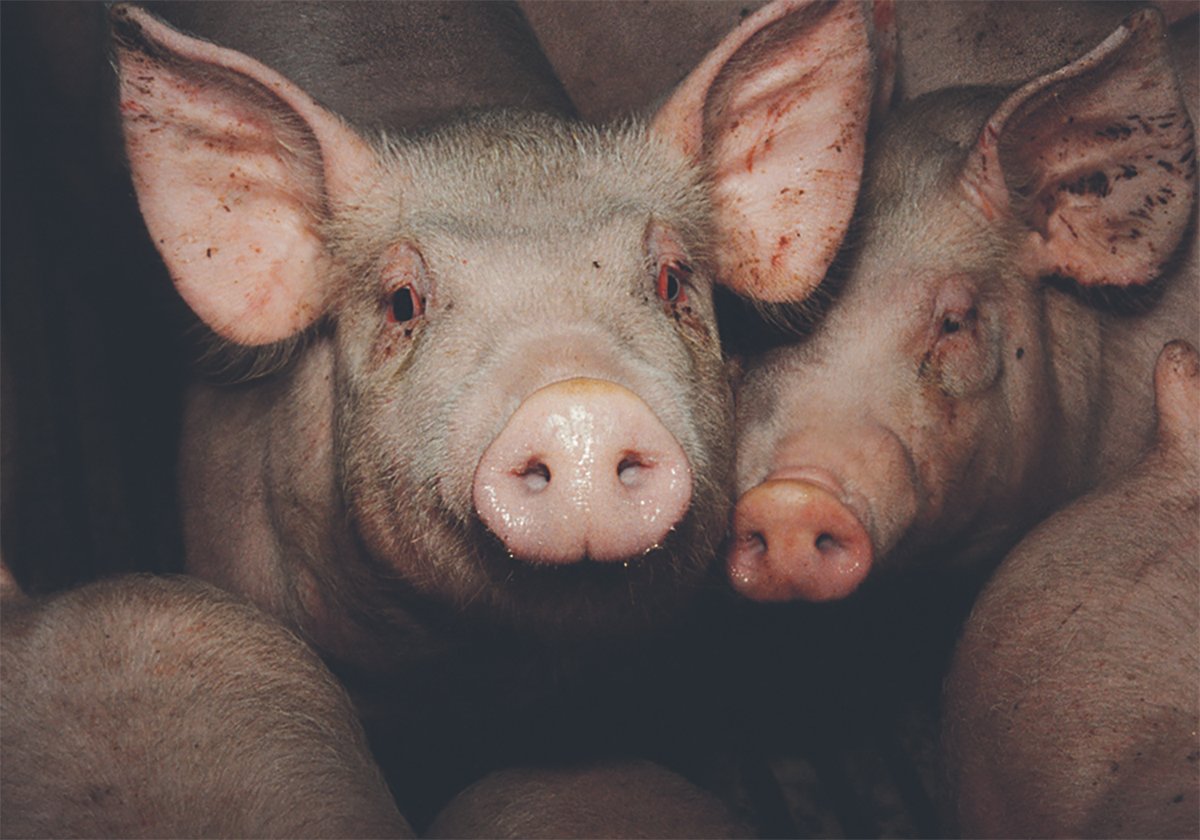
The Western Producer Livestock Report – October 30, 2025
Western Producer Livestock Report for October 30, 2025. See U.S. & Canadian hog prices, Canadian bison & lamb market data and sales insights.


